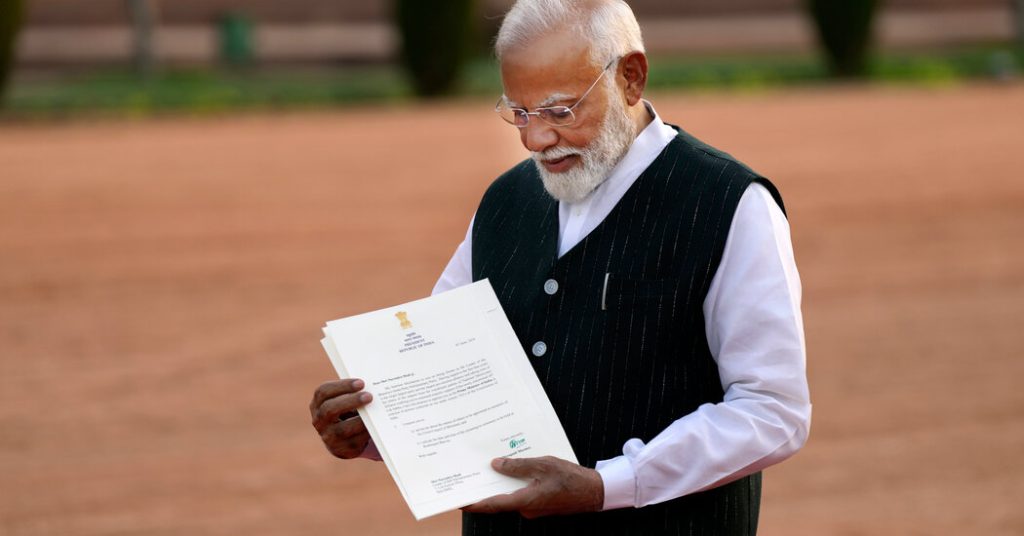Narendra Modi has been re-elected for a third term as India’s prime minister, but with a reduced parliamentary majority. This has forced him to form a coalition government with diverse partners, giving them a newfound relevance and spotlight. Modi’s change in approach is evident as he presents himself as a modest administrator rather than a messianic figure. Analysts believe this shift towards moderation is a positive development for India’s democracy, moving away from a Hindu-first monolithic vision.
While Modi has a history of using power leverages to break his opponents and secure their support, his recent behavior shows a change in approach. He has displayed humility and respect towards his coalition partners, emphasizing the promise of good governance and a developed India. This change in demeanor is a departure from his previous authoritarian style of governance, raising questions about whether he can truly become a consensus builder in his new term.
Modi’s rise to power has been characterized by a firm grip on leadership, both at the state and national levels, and a track record of majority rule. His rule has led to the swift implementation of his party’s right-wing agenda, including controversial decisions such as building a Hindu temple on a disputed site and revoking the special status of Kashmir. However, his disregard for parliamentary procedures and unilateral policy decisions have faced backlash and protests from the public.
Prior to the election results, Modi’s party had high expectations of winning a large majority in Parliament and implementing their remaining agenda items. However, with a coalition government in place, contentious issues like enacting a uniform civil code may be put on hold if coalition partners are not comfortable with them. Modi’s dual image as a champion of economic development and a Hindu nationalist has been a cornerstone of his popularity, but his recent electoral setback may push him towards focusing on economic transformation.
The rebuke by voters in the recent election has prompted Modi to tap into his development champion side and focus on consensus-building. While a majority is necessary to run the government, consensus is vital to run the nation effectively, as Modi acknowledged in his speech. The coalition government setup presents a new challenge for Modi’s traditional approach, particularly with secular coalition partners who may oppose his Hindu nationalist ideology. Moving forward, Modi’s ability to navigate these challenges and find common ground with his partners will be crucial for the success of his third term as Prime Minister.


